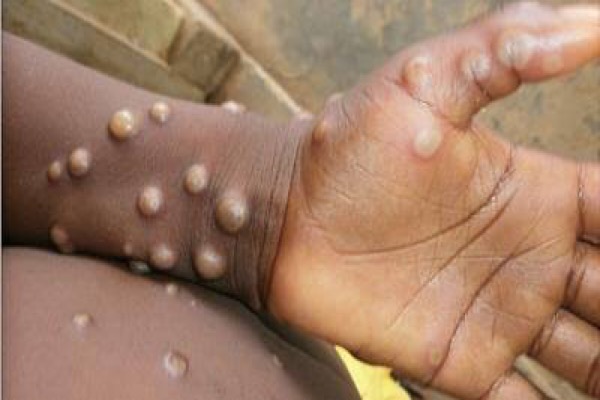The Nigeria Centre for Disease Control (NCDC) has recorded 481 cases and seven deaths from Monkeypox in the country, bringing the total cases to 1,180.
The NCDC Director-General, Dr Ifedayo Adetifa, made this known at a bi-weekly ministerial media conference anchored by the Minister of Health, Dr Osagie Ehanire, in Abuja on Tuesday.
Adetifa said the NCDC has developed a treatment regime which could entail the option of having antiviral treatment for those at the highest risk of having severe complications, hospitalisation and death.
“People with immunosuppression fall in that category. People who have dual infection with chickenpox or Monkeypox at the same time fall in that category.
“We want to be able to reduce the sufferings in patients and the death rate while working on an integrated, one health approach to bring Monkeypox under control,” he said.
The NCDC boss added that Nigeria has so far recorded 933 confirmed cases of Lassa fever in 2022, which was about two and a half times higher than the number of cases recorded in 2021.
He said there had been 173 Lassa fever deaths in 25 states and 102 local governments with 71 per cent of the deaths recorded in Ondo, Edo, and Bauchi states.
“We continue to respond by providing treatment and infection prevention, as there are larger regional or international activities in terms of preparing for vaccine trials.
READ ALSO: Wike appoints 14,000 advisers
“Early phase of vaccine trial for Lassa fever has started in Liberia and there had been efforts to look at clinical drug development pathways.
“These are all in a bid to ensure that we reduce fatality which stands at two digits now, to hopefully a single digit,” Adetifa stated.
The NCDC director-general said there have been 18,000 confirmed cases of measles in Nigeria and 234 resultant deaths in 2022.
He noted that while the outbreak of measles was not as highly-reported as it was the case with other ailments, it was an ailment that was the cause of significant suffering and death in children.
He said children under the age of five years were particularly at risk and that at the moment 40 local government areas had active cases.
Adetifa stressed that the centre had continued to encourage parents to vaccinate children against measles to bring it under control.
He said Nigeria also recorded 10,217 cholera cases and 233 deaths in 31 states and 243 local government areas, taking the country to an unenviable position of recording the highest number of cholera cases worldwide.
“We recorded cholera infection everywhere where there were challenges with water, sanitation and hygiene so it does not matter whether the neighbourhood looks rich or looks developed.
“If you have challenges of water, sanitation and hygiene, cholera is not far behind.
READ ALSO: Ogun govt confirms 4 Monkeypox cases
“At the moment, we are about to send rapid response teams to Adamawa, Bornu, Gombe, Jigawa, Katsina and Yobe because of the rapid increases in case numbers,” he added.
Adetifa stated that there was an ongoing outbreak of Ebola in Uganda caused by the Sudan strain of the virus, which he said has become worrisome because of the West African experience.
He expressed anxiety that the Sudan strain of Ebola virus was not covered by available vaccines, adding that there were neither licenced vaccines nor treatment for it.
The NCDC boss, however, assured that all concerned authorities were on high alert given the realities of globalisation and the fact that an infection such as Ebola was just a plane flight away from any country.
“We have a bit of reassurance because we have some experience in handling Ebola.
“We have the diagnostic capacity, but we will rather not have it. We would rather not have to respond to it, especially with the strain that has no vaccines and no licensed treatments.
“Point of entry surveillance is at a very high level. Passengers travelling from Uganda or who passed through Uganda are being followed up for 21 days to ensure that their health is clear.
“The difference between Ebola and something like COVID-19 is that victims need to be actually sick and symptomatic before they can transmit.
“Ebola allows professionals to pick up likely suspects early but what it also means is that at the time that the victims are identified, everybody around is at significant risk,” Adetifa said.
- NiMet forecasts 3-day dust haze, sunshine from Wednesday - November 20, 2024
- Alake: FG’s reforms positioning Nigeria as global mining hub - November 20, 2024
- Tompolo: I’ve become target for oil thieves - November 20, 2024










